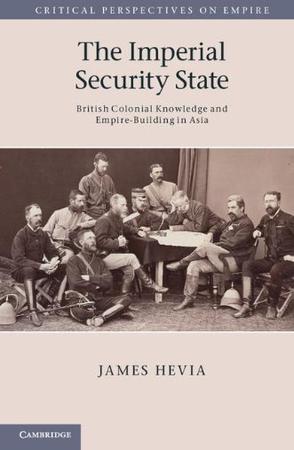
章节目录
Table of Contents 1. Introduction 2. The military revolution of the nineteenth century 3. Imperial state formation, the professionalization of the army, and the making of experts 4. Forming intelligence, making an archive 5. Disciplining the space of Asia: triangulation and route books 6. Regulating the facts of Asia: military reports and handbooks 7. The uses of intelligence 8. The effects of the imperial security regime in Asia and Great Britain 9. Imperial security and the transformation of Asia Bibliography.
内容简介
The Imperial Security State explores an important but under-explored dimension of British imperialism – its information system and the close links between military knowledge and the maintenance of empire. James Hevia's innovative study focuses on route books and military reports produced by the British Indian Army military intelligence between 1880 and 1940. He shows that together these formed a renewable and authoritative archive that was used to train intelligence officers, to inform civilian policy makers and to provide vital information to commanders as they approached the battlefield. The strategic, geographical, political and ethnographical knowledge that was gathered not only framed imperial strategies towards colonised areas to the east but also produced the very object of intervention: Asia itself. Finally, the book addresses the long-term impact of the security regime, revealing how elements of British colonial knowledge have continued to influence contemporary tactics of counterinsurgency in twenty-first-century Iraq and Afghanistan. - Innovative study of British military intelligence before World War One - Sheds new light on the close links between empire-building and intelligence - Reveals the long-term origins of contemporary counterinsurgency tactics "This book is a groundbreaking study of the rise of the British imperial security regime in the 19th century. James L. Hevia’s mastery of rare military archives demystifies the trope of the Great Game and provides an extraordinarily detailed analysis of how the geopolitical boundaries of Asia were produced through a proliferation of route books, maps and statistics, and other apparati of imperial intelligence networks. His scrutiny of the imperial past makes the contemporary security-obsessed American empire supremely legible." Lydia H. Liu, author of The Clash of Empires "Clearly written, well researched, and persuasively argued, Hevia's latest book will engage a range of readers. Scholars of diplomatic history will find especially valuable Hevia's insights into the growth and development of military intelligence as the other major component of the developing European security regimes in Europe and in Asia. Historians of Asia will also gain much from his research, linking as it does south, central, and eastern Asia into the British imperial network of intelligence gathering and control." Michael H. Fisher, H-Diplo "… an elegant, thoughtful and often provocative analysis of how security imperatives dictated the collection, analysis, and dissemination of military information … The Imperial Security State makes a persuasive and passionate argument for the centrality of military intelligence in not only developing strategies to intervene in Asia but more significantly in defining what Asia actually meant then and now. It is a very compelling account, lucidly presented, solidly researched and theoretically sophisticated." Douglas M. Peers, Journal of Colonialism and Colonial History "Recommended." Choice
下载说明
1、The Imperial Security State是作者James Hevia创作的原创作品,下载链接均为网友上传的网盘链接!
2、相识电子书提供优质免费的txt、pdf等下载链接,所有电子书均为完整版!
